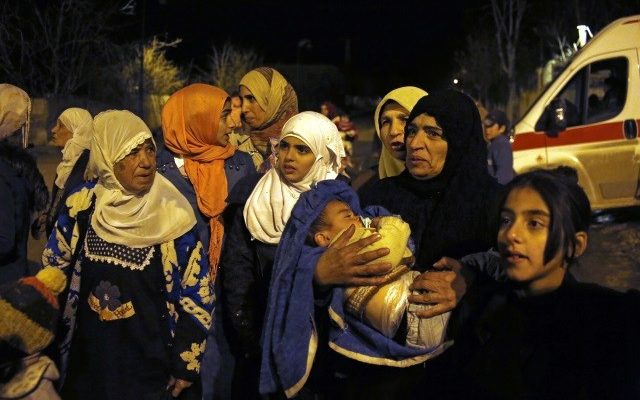Qatar and Turkey express support for Trump’s plan to make “safe zones” in Syria, while Russia expresses skepticism.
Qatar and Turkey, two Muslim countries that have backed and supported rebel factions in the Syrian civil war, welcomed President Donald Trump’s call for “safe zones” in Syria during an interview with ABC News that was aired on Wednesday.
“I’ll absolutely do safe zones in Syria for the people,” Trump said in the interview.
Qatar’s ministry director of information Ahmed al-Rumaihi confirmed that his country embraced Trump’s plan.
“(Qatar) emphasized the need to provide safe havens in Syria and to impose no-fly zones to ensure the safety of civilians,” he said according to Qatar News Agency.
Turkey’s Foreign Ministry spokesman, Huseyin Muftuoglu, expressed a more cautiously optimistic tone.
“Setting up of safe zones is something Turkey has advocated from the start,” he noted. “We have seen the US President’s request for conducting a study. What’s important is the results of this study and what kind of recommendation will come out.”
During the presidential campaign, Trump had called for the establishment of safe zones in Syria to be paid for by the Persian Gulf states in lieu of refugees from Syria being taken in by Europe and the United States.
“I think that Europe has made a tremendous mistake by allowing these millions of people to go into Germany and various other countries,” Trump added in the ABC interview aired on Wednesday.
Russia, which has strongly backed and defended the Syrian government appeared to somewhat question the viability of such a plan.
“It’s important to make sure that this does not worsen the situation with refugees,” said the Kremlin’s spokesman Dmitry Peskov. “All the possible consequences should be taken into account.”
Nevertheless, Peskov recognized that such a policy was Trump’s to make.
“Our American partners did not consult with Russia (on the plan),” he said. “It is their sovereign decision.”
By: Jonathan Benedek, World Israel News




